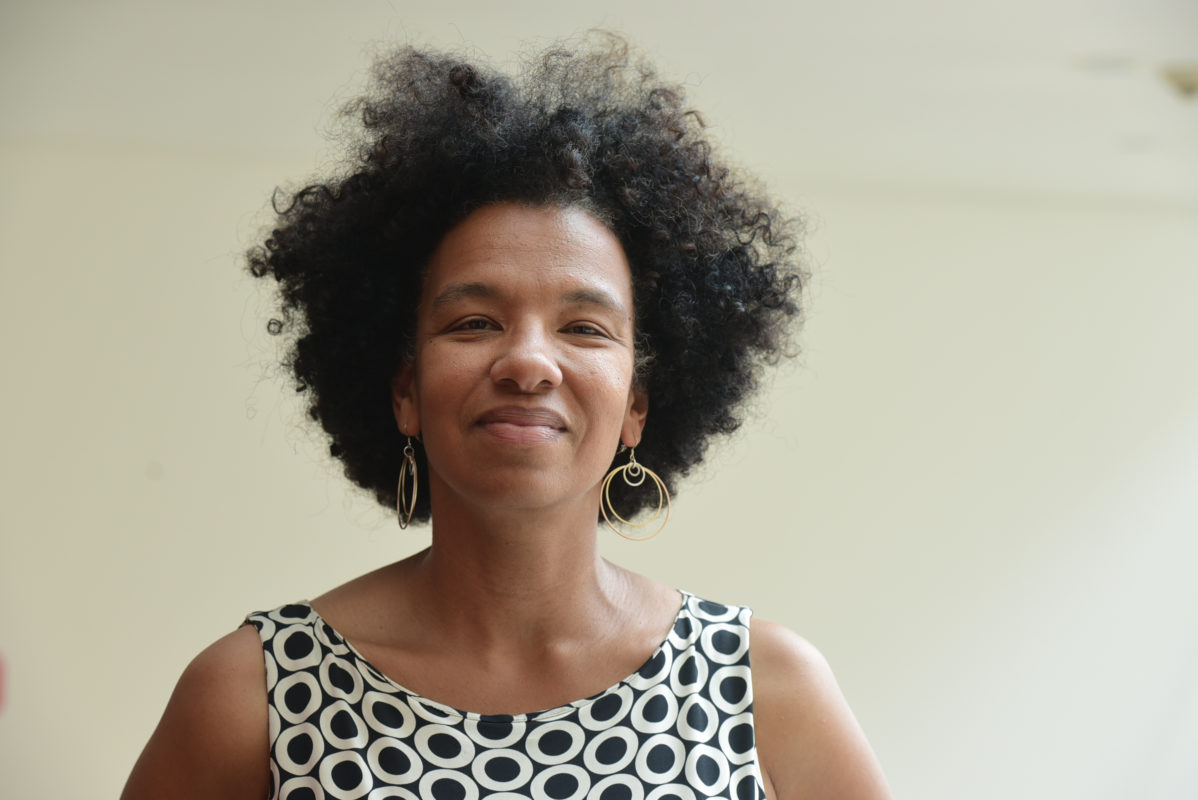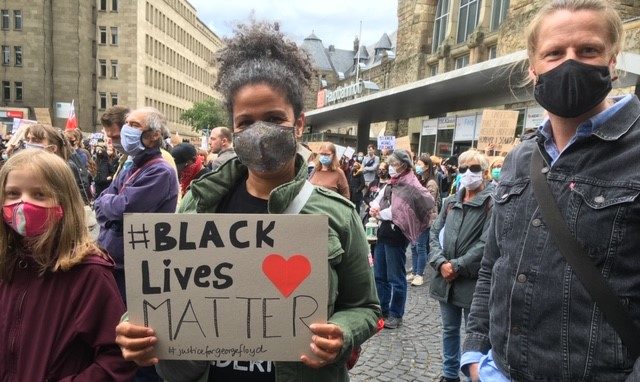Two weeks ago I spoke at the Black Lives Matter demonstration in my hometown Aachen. Together with many other black and people of color, I wanted to make a clear statement: racism takes our breath away – in Europe. And we urgently need laws and policies to change that.
While white people have been asking me for over 40 years whether I “have experienced racism”, we know that racism is common in Germany – and probably in every other European country. It finds us people of color personally, in films, books, TV shows, on Twitter, at school, at borders, in companies, on the housing market … or in encounters with the police. And it finds white people in the form of representation, privileges and power – in exactly the same places. The two sides of the racism medal are discrimination and privilege.
NGOs – a white club?
This also applies to the NGO (Non-Governmental Organization) sector. As a black woman, I am used to being “the only one” anywhere. This is not different at events in the German development cooperation and NGO scene – unless explicitly “guests” from countries in the Global South are invited. Most NGOs are a very white society. “White Charity” is the logical name of a film that takes a critical look at racist stereotypes of fundraising by German aid organizations. But unfortunately, all other areas of our organizations are “so white” as well. In Germany, 25% of the population have a so-called migration background (due to German history there are no statistics about “race”). However, we are rare exceptions among the board members, employees and supporters of the vast majority of NGOs.
That is why we are very hesitant to discuss racism in our work. The analysis of how central racial narratives of colonialism are reproduced in our work has hardly reached our organizations. The narrative of the “White man’s burden” lives on. Be it in the precise goals, indicators and measures of “development” programmes voluntary services or Fridays for Future (FFF), the colonial narrative continues. Even the global climate movement needs a white savior, Greta Thunberg.
I think Greta is an amazing and inspiring person. But why don’t we appreciate Ridhima Pandey , Isra Hirsi or Vanessa Nakate equally? The Ugandan Nakate for example was simply cut of a press photo showing young climate activists at the World Economic Forum in Davos. This incident is emblematic: the struggles and contributions of black, indigenous and people of colour is erased. A global movement is whitewashed.
Of course, this is not done on purpose. But unfortunately, racism is not an exclusive of evil Nazis or the Ku Klux Klan. Racism is part of the DNA of European history, politics and philosophy, but there is only limited general knowledge about this. The history of the transatlantic slave trade and colonialism is neither seriously taught in German schools nor is its importance related to the present. And so, the knowledge of most people about these periods is mainly fed from films such as ‘Out of Africa’, ‘Gone with the Wind’ or ‘Django unchained’. Thus racism is perceived above all as a problem of “bad people” in the USA, which has for long been overcome in Europe.
Unfortunately, most people in the NGOs world are no exception. In most development studies courses, the historical perspective is lost. According to this reading, development cooperation begins with the era of independence and the effects of colonialism are analyzed at best in relation to the global South, but never in relation to the global North. In my view, the critical perspectives of power relations in black and decolonial studies should urgently find their way into the compulsory part of the degree programmes – and into the further education programmes of the organizations.
I really hope that Black Lives Matter makes NGOs to get rid of colonial myths and racist thought patterns and structures. So that we can finally do our job right: make the world a better place …

partnerships and donor contacts at Misereor, CIDSE’s Member in Germany

